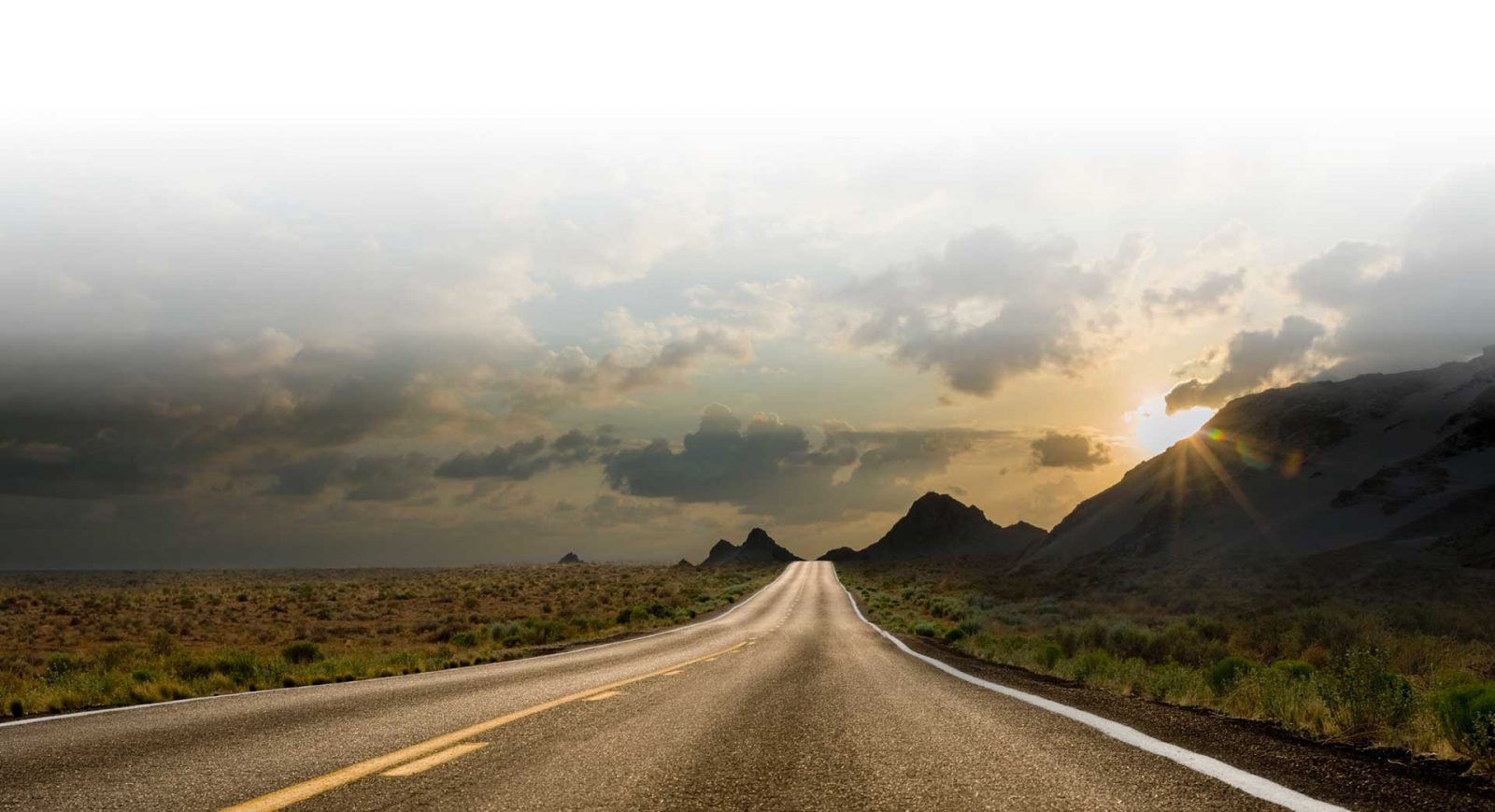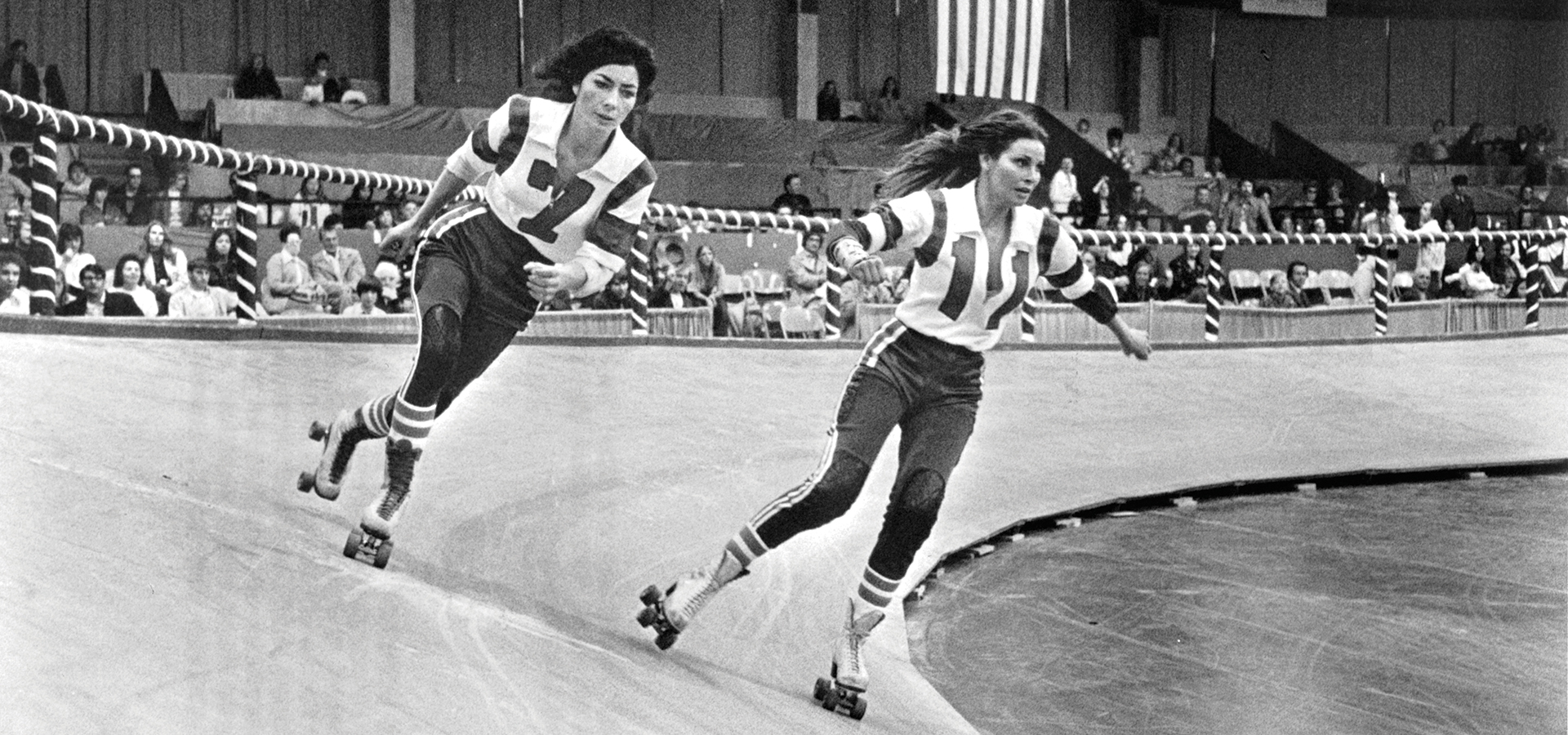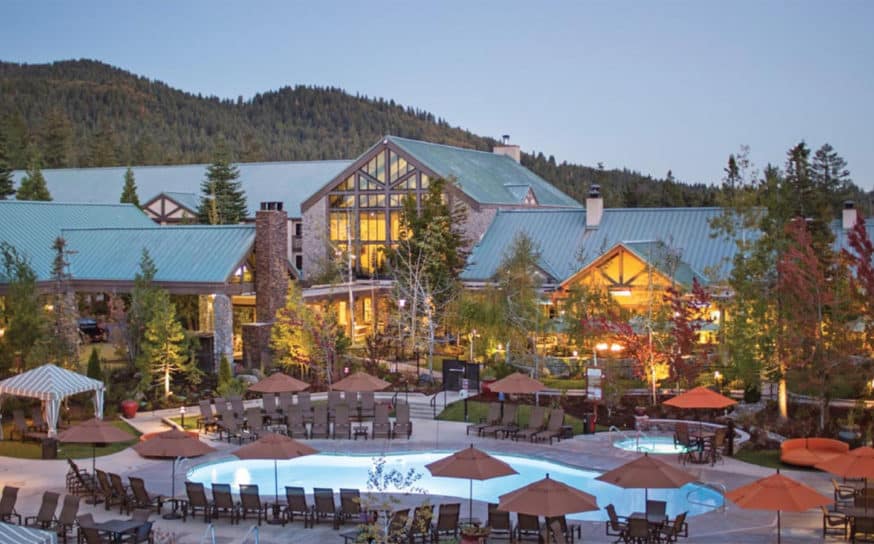This Unassuming 70’s Skating Rink Became SoCal’s Hottest Celebrity Hangout
Move over Studio 54.
-
CategoryArts + Culture, Time Capsule
-
Written byChloe King and Carol Wolper
-
AboveRoller skating runs deep in actor Helena Kallianiotes’ veins. Here she’s shown skating with Raquel Welch in the Roller Derby film Kansas City Bomber.
In the late 1970s when New York’s infamous nightclub, Studio 54, was making headlines, another celebrity-fueled nightspot here on the West Coast was creating a sensation. The two nightspots couldn’t have been more different. With live animals, fog machines and sequin-clad dancers, Studio 54 was akin to a rowdy Vegas show, and people went there to be seen. The nightspot on the West Coast was down and dirty, drug- and alcohol-free, and completely under the radar. And the location was something of a surprise. It wasn’t near the bright lights of Tinseltown, but rather deep in the San Fernando Valley. It was a barebones roller skating rink on Sherman Way in working-class Reseda.
Skataway was the brainchild of one of the most underrecognized “it girls” of the 20th century, Helena Kallianiotes. A Greek immigrant, belly dancer and actor (Five Easy Pieces), Helena became aware of Reseda’s Sherman Square Roller Rink when her friend Michelle Phillips of the Mamas and the Papas asked if she’d give her skating lessons in the hope of landing a part in a Roller Derby movie. Helena, once a championship skater, didn’t hesitate. Michelle learned quickly, but as she dryly recalls, “I did not get the part. Helena did.” That film was Kansas City Bomber, a cult favorite that starred Raquel Welch and earned Helena a Golden Globe nomination.
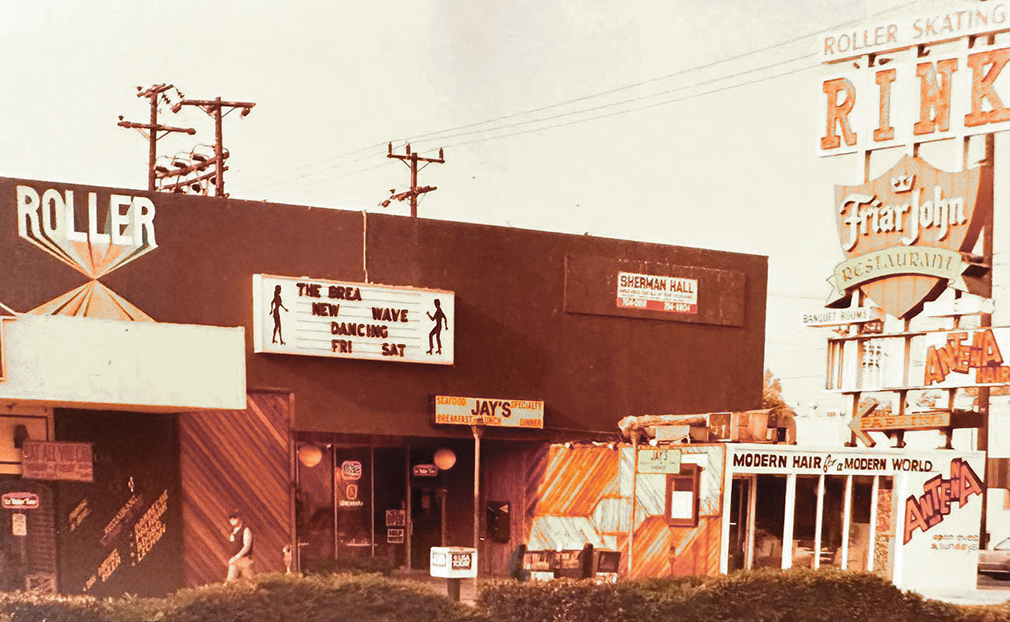
But it wasn’t until Helena was hanging with her pal Ringo Starr that the idea of a skate club came to be. As she remembers it, “Ringo was complaining that there was no place to take his son for fun in LA, and I thought, yes there is.”
Soon Helena was calling her friends, inviting them to a mystery evening out. The only clue was an address in Reseda. The only instructions: “Wear comfortable clothes, socks, and bring a dollar.”
Considering the unglamorous location, Helena expected a handful of friends. Seventy-five showed up.
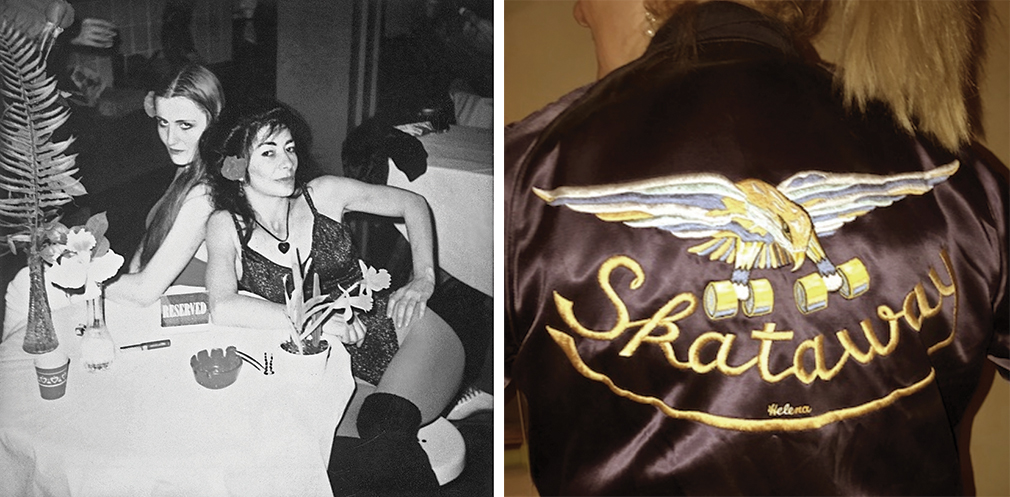
The evening was so successful that Helena started renting the rink every Monday night, and soon some of Hollywood’s biggest names began showing up. Regulars included Ed Begley Jr., Michelle Phillips, Ringo and son, Jack Nicholson, Anjelica Huston, Cher, Jeff Bridges, Rebecca De Mornay, Joni Mitchell, Penny Marshall, Kareem Abdul-Jabbar and Francis Ford Coppola.
As Rebecca De Mornay puts it, “Skataway Mondays were incredible relaxing fun. Maybe that’s what made it so incredible. Nobody was uptight if Helena was running things.”
In contrast to Studio 54, Helena’s club had a strict no-paparazzi, no-cameras rule. That point was made clear by a sign that famed LA artist Ed Ruscha painted for Helena to hang near the entrance that read: “No cameras. No drugs. No press.”
“I wanted a safe space where you could fall on your ass and not have it be in the National Enquirer the next day,” explains Helena.
There were a couple other rules, she adds: “No alcohol—skates and booze don’t mix—and everyone had to skate. You weren’t allowed to be just a spectator.” Though ask Jack Nicholson what he remembers most about Skataway, and he recalls a spot at the railing overlooking the rink where he liked to survey the action. “I’d hang out there, watching everyone skating by.”

But Nicholson wasn’t just a spectator. “Jack became a very good skater,” Helena points out. “He even got good at skating backwards.”
Ed Begley Jr., one of the original members (membership included an ID card and spiffy Skataway satin jacket) was also known on the rink for his expertise skating backwards. He says that he even got a job out of those skills.
“A casting agent for Charlie’s Angels was there one night, and I got cast in an episode about the Angels investigating a skater who gets kidnapped on Venice Beach.”
Though Helena jokes that her Monday night skating club at one point was turning into “deals on wheels,” fun and friends remained the priority for most.
Allegra Huston (John Huston’s daughter and Anjelica’s sister), who was a teenager at the time and Helena’s secretary, remembers that although there were plenty of stars, everyone was treated equally. “Helena did have her small roped-off reserved section, but that was not about being famous; it was about being her friend.”

The general consensus was that Skataway was about your vibe, not your resume. And the vibe Helena was going for was “a good time and plenty of exercise.”
Though she did make some money (beyond the minimal door charge) selling professional roller skates, Helena admits, “I could have made a lot more. Nordstrom wanted to go into business with me selling Skataway jackets, and Flippers—a skate club that later opened in West Hollywood—offered me a fortune to get my guest list.”
No surprise that Helena turned them down. Her cachet was not for sale; nor was her friends’ information. Not her style.
Part of the fun vibe had to do with the music. A DJ would blast disco favorites until things wound down around 11 p.m. At that point, Helena and her inner circle often moved on to the 94th Aero Squadron at Van Nuys Airport, where the crowd would knock back a few drinks.
Allegra Huston recalls staying out until 2 in the morning and then getting up early the next day to go to school.
No one got tired back then.
After about four years, Helena ended her Monday night skating parties. The end was abrupt, due, in part, to a shooting that took place at the rink, albeit not on a Monday night. But Helena is decisive by nature and when she senses it’s time to move on, she does.
Driving by the location today—now a Walgreens drugstore—it’s hard to imagine that Sherman Way in Reseda was an exclusive celebrity hotspot. And that with Helena’s special touches like white tablecloths and a rose on every table, an ordinary roller rink was transformed into a one-of-a-kind, almost magical experience.
We can imagine it, but we can’t see it. The downside of Helena’s no-cameras rule means there are almost no photos of this sparkling weekly event. But the people who were there hold onto the memories.
“Round and round that rink, and boy, could you fall hard. I know I did,” Michelle Phillips remembers fondly.
“They all fell from time to time, and they all got up and kept going,” Helena adds with one of her wry smiles.
For the crowd lucky enough to attend, Ed Begley Jr. sums up Monday nights at Skataway perfectly: “It felt like freedom.”
Chloe King and Carol Wolper are working on Hollywood, North, a book that examines the San Fernando Valley’s often-underplayed role in Hollywood film and TV history. Over the next several issues of VB we’ll share, as we did with this article, some excerpts from their interviews for the book.
Yosemite Gets Its Groove Back … and Welcomes Back an Important Grove
We missed you, Mariposa Grove.
Get the Latest Stories
